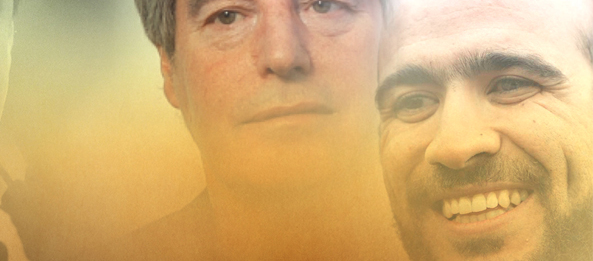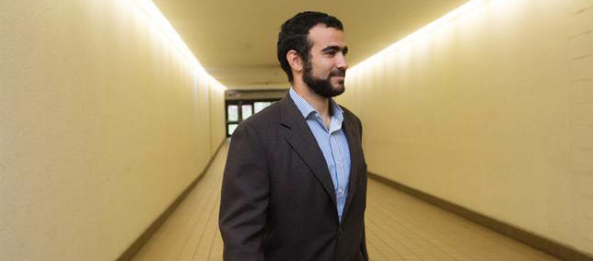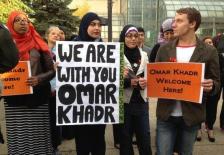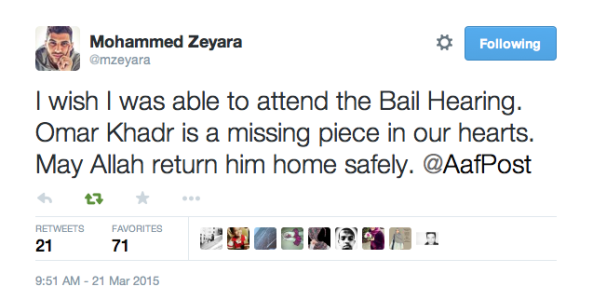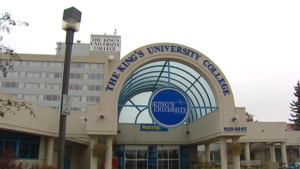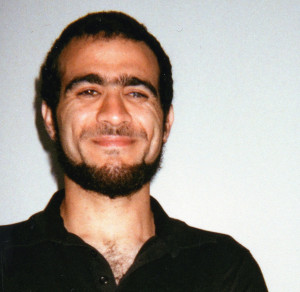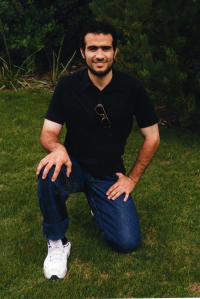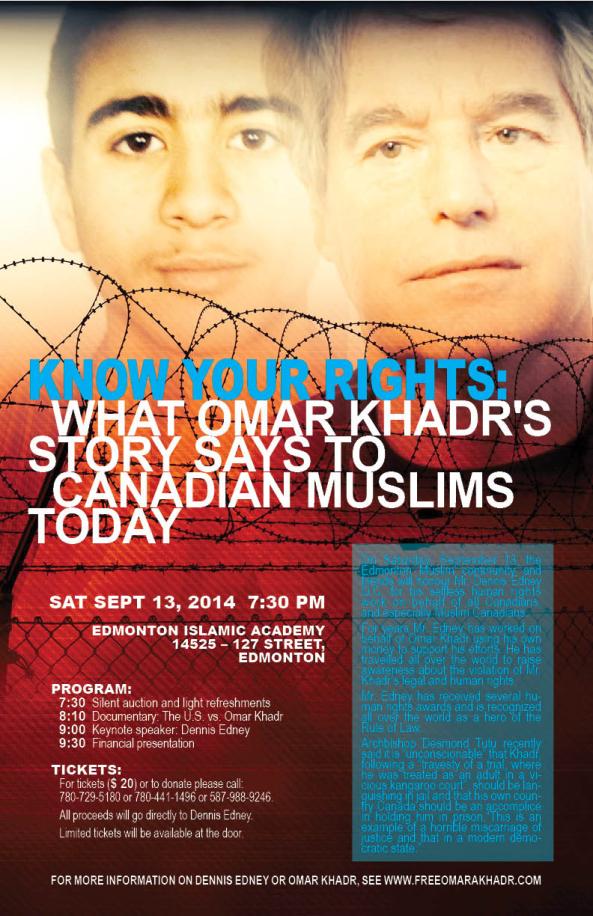By Hazel Gabe
Everyone, Omar Khadr has been in prison for THIRTEEN YEARS. Since he was FIFTEEN. Now he’s twenty-eight. And not just prison. Illegal black hole detention with no rights, and people torturing him, and, for years on end, no end in sight, no knowledge of if it would ever stop. Since he was FIFTEEN. Ten years in Guantanamo Bay.
Who is Omar Khadr, you might ask? He’s an innocent young man whose story proves what happens when racism and Islamophobia is used by powerful, cowardly governments that want a scapegoat. Let me tell you about him. He is important.
He’s a Canadian citizen. He was born in Toronto. He grew up in Toronto and Pakistan. When he was fifteen, his dad left him with some men in Afghanistan, telling him to translate for them, since he spoke several languages. His father was supposed to come back to get him, but he never did. Omar was stuck there. If he’d run away, it would have shamed his father, and he might have been killed. The men were Taliban fighters.
While he was there, Americans attacked. First they bombed the house. Bombed it with 500-pound bombs. It was reduced to rubble. Then they stormed it. Eighty feet from the entrance, in a small alley, a special forces soldier recalls seeing Omar face down in rubble, screaming from the shrapnel wounds from the bombing, which had pierced his eyes and all over this body. The soldier shot him twice in the back. (This was a war crime.)
Omar was taken to a place called Bagram. He was unconscious for a week. When he woke up, his suffering had only just begun. Soldiers there told him he had killed an American soldier. They tortured him. He was still wounded from the shrapnel and the gunshot wounds and the head trauma from the bombs. He didn’t know anyone there and he was a fifteen year old kid. They shackled him in painful positions to make his wounds hurt, they hung him by his wrists, they threatened him with rape. They waterboarded him. They made him confess to anything they wanted. He confessed to killing an American soldier.
They didn’t bring him consular officials from Canada, they didn’t let him talk to a lawyer. They didn’t have someone there who was on his side (International law forbids the lengthly incarceration of children, stipulates that they must be provided education and must have access to adult advocates. International law forbids torture).
They asked Canada if it was ok they were treating a Canadian citizen like this. Canada said we don’t care. Canada said let us prove our loyalty to the United States by sacrificing one of our own. Let us help you torture him.
They brought him to Guantanamo Bay. They didn’t charge him with anything. They just held him there, for years. Sixteen, seventeen. Most kids are in high school. He had no schooling opportunities, no books. He was tortured with cells that are constantly kept freezing cold, no blankets, lights that never turn off. Sleep deprivation. Stress positions. Other things, no doubt worse.
Canadian officials came to visit him, but they were only there to ask him more questions. He cried for his mother when he realized they weren’t going to help him.
Finally they charged him with something. It wasn’t a crime. It was a fake crime they invented. War crimes are things that exist in international law, because wars are things that happen between countries. The Geneva conventions tell us what are and are not war crimes. War crimes include things like killing a medic, killing a prisoner, or torturing a prisoner of war. Omar did not commit any war crimes. Even if he had thrown a grenade that killed an American soldier, it would not have been a war crime. The soldier would have been a war casualty, and Omar would have been a child soldier, protected under international law because child soldiers are vulnerable and not held responsible.
So the US invented some new “crimes”. They called them war crimes, even though they couldn’t be, because no one country can unilaterally decide that they’ve changed the rules of war without consulting with the rest of the world. That way lies no laws at all. But this is what the Americans did.
Then they “tried” him in something that looked like a court, but wasn’t. It had the judge and the lawyers, but it didn’t have fairness, what’s called due process. He wasn’t allowed to see the evidence. He wasn’t allowed to choose his lawyers. He wasn’t allowed to bring witnesses for the defence, such as psychologists who knew him and could attest that he was a good person who was remarkably peaceful and generous and kind and without hate, amazingly, a person who spoke of peace and not a radicalized jihadist.
This false court allowed the confessions. The confessions that had been made by a fifteen-year-old who was being tortured, who was concussed and injured and bleeding, and had never been told that anything he said could be used against him in a court of law. Indeed it could not have been used in a real court. But this wasn’t a real court.
He was twenty-three by the time it went to “trial.” He was told that the trial wouldn’t change anything. Even if he was ruled innocent, they could keep him there forever.
Or he could plead guilty. Then he’d have a chance of going back to Canada.
He had no choice.
Canada let him come home, a year late. Age twenty-six. The government officials labelled him a dangerous terrorist, and stuck him in solitary. The first time he was allowed out, he was attacked by one of the violent criminals in the max security prison. At Guantanamo he had been considered minimum risk.
Government officials call him a terrorist. Newspapers call him a terrorist. And they keep him locked up, even though the Guantanamo Bay “court” wasn’t a real “court.” Australia and Great Britain protected their citizens from the flagrant abuse of their rights by taking them out of there as soon as possible. Canada abandoned a child there.
Canada continues to pretend Omar is guilty. It continues to pin its hatred of immigrants, its hatred of Muslims, and its hatred of people it sees as interlopers who come and take advantage of our “freedoms,” on Omar. It continues to abuse him and pick and choose what citizens it wants to uphold and what citizens it wants to abuse. The government continues to break the law by keeping him in prison.
Finally Omar is in a medium security prison, has friends in the nearby city of Edmonton who visit him, and teachers who have been supporting him from a nearby college. All faciliated by his Canadian lawyer and other supporters. His lawyer has worked without pay for him for over ten years, almost bankrupting himself in the process.
Omar Khadr has just applied for Bail. He’s in court this week. If he gets it, he could be free!! Free for the first time in thirteen years!!!
Pray for him. Pray for freedom for Omar.
Even if he gains freedom, Omar’s still got a long fight ahead of him to clear his name in the American courts and the Canadian courts.
You can donate to his legal fund here: https://freeomar.ca/donate/donate/
Like this:
Like Loading...

